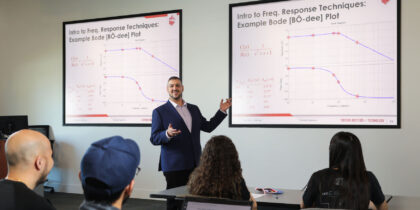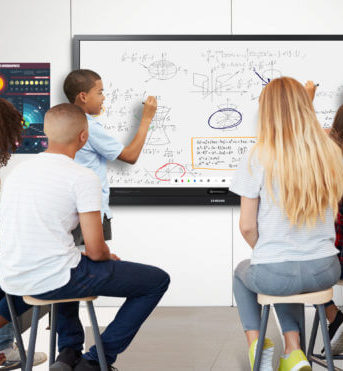Colleges can play a big role in helping companies when it comes to workforce development. Higher-ed students emphasize the importance of gaining college career experiences and skills to make them good job candidates when it’s time to swap their caps and gowns for business attire, a new survey shows.
Opportunities to polish their interpersonal skills and earn a degree in a marketable field are high priorities for 78 percent and 67 percent, respectively, of undergraduate and graduate respondents to the McGraw-Hill Education 2016 Workforce Readiness Survey. Perhaps not surprisingly, STEM majors are the most optimistic about their prospects of getting a good job.
A particularly notable finding is that an overwhelming 85 percent agree that the frequent use of technology in their coursework and for study sets them up to be stronger employment candidates.
Opportunities for Improvement
Still, there are some gaps to fill when it comes to how successful higher education institutions are at helping students use technology to enhance learning. Thirty-eight percent of survey respondents would feel more prepared for their professional careers by using digital or online applications to help them learn classroom concepts more efficiently and effectively. However, this year saw a 5 percent increase, from 6 to 11 percent, in the number of students who have never used study technology.
Other studies have also noted that there’s room to improve how technology is used at the college level. At least half of college students believe they could become more effective students if they were better skilled at using search tools to find references or other information online for class work; learning management systems; online collaboration tools; laptops during class; and recorded lectures or lecture captures, and wished faculty would use them more, according to the Educause Center for Analysis and Research Study of Undergraduate Students and Information Technology, 2015.
Faculty are open to learning more about how to use technology that can engage students, the ECAR study reports, and schools should identify learner priorities and act on them. “Technology has rarely been a strategic differentiator in higher education,” it notes, “but this may be changing as students’ expectations are growing.”
Nitty-Gritty Workforce Development
Students who can leverage digital platforms to help them learn more effectively are expected to have a better grasp on foundational career knowledge, whether it’s understanding cancer biology for medical students or project management principles for business majors.
But are they becoming well-versed in the practical use of technology in the everyday work world? That appears to be the case for more than half of the McGraw-Hill respondents. They cite learning to use common workplace technologies as among the top skills they’ve acquired on campus.
It’s a trend employers will likely want to see gain steam. A little over one-third of managers believe recent grads lack data analysis skills using common tools like Excel and Tableau, as well as industry-specific software expertise with products like Salesforce, according to the PayScale 2016 Workforce-Skills Preparedness Report.
Keeping up with the changing landscape of higher education can be challenging for teachers. Find out here why teacher development in higher ed is now more crucial than ever.







